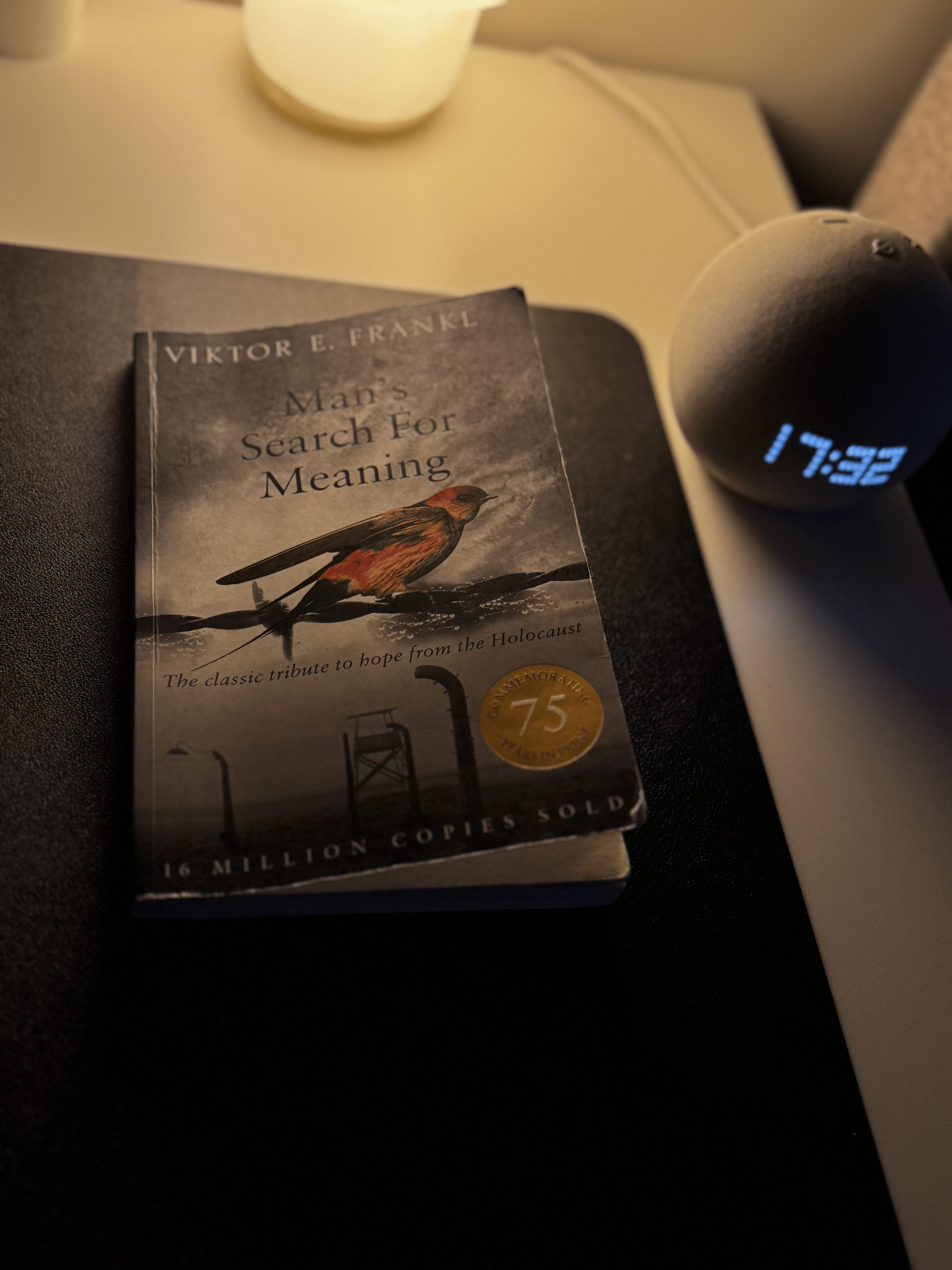Book Overview
Man’s Search for Meaning is a deeply moving book by Viktor E. Frankl, a Holocaust survivor and psychiatrist. It is part memoir and part psychological exploration, focusing on his experiences in Nazi concentration camps and the lessons he drew from them. Through immense suffering, Frankl argues that the key to human fulfillment is meaning, not pleasure, not power.

Author’s Theory
Frankl’s core belief, based on his experience in the camps, is that even in the most unimaginable suffering, life still holds meaning. He developed logotherapy, a psychological approach that suggests that a person’s primary drive is not pleasure (as Freud believed) or power (as Adler proposed), but meaning. He argued that humans can endure almost anything if they have a purpose to hold onto.
Key Takeaways from the Author’s View
Frankl describes three ways to find meaning in life:
- Through work – by doing something significant especially when that work is both creative in nature and aligned with a purpose greater than ourselves.
- Through love – which often manifests itself in the service of others (family, friends, community, etc.)
- Through suffering – by finding purpose in unavoidable pain
He explains that suffering, when faced with the right mindset, can be transformed into personal growth. He also discusses the psychological responses to extreme hardship, such as the delusion of reprieve—where people in desperate situations cling to false hope, believing they might be saved at the last moment, a common reoccurence he saw in the camps.
Another striking idea is: “An abnormal reaction to an abnormal situation is normal behavior.” In extreme circumstances, our minds adapt in ways that may seem irrational in normal life, but they are entirely natural given the context.
Personal Reflection
Reading this book made me reflect on how humans navigate challenges. Frankl’s insights made me think about moments when I felt there was no way forward—yet somehow, I survived. It’s a reminder that as long as we hold onto meaning, we can endure much more than we think.
What I resonated with the most is Frankl’s belief that meaning can be found through work and love. Whenever it feels like I am starting to drift away, I remember that I am not doing this for myself but for the people I love dearly—family and friends. My work and purpose are deeply tied to them, and that keeps me going. The idea that love and purpose through work can anchor us in tough times is something I deeply relate to.
The delusion of reprieve resonated with me because it reflects how we often hope for a last-minute escape from difficult situations. Sometimes, things do turn around, but other times, we have to face reality. Even then, our mindset determines how we come out of it.
Now this is aside from reflection from this book, but my faith as a Christian plays a significant role in how I view hope and resilience. I believe that even in the darkest moments, faith provides a guiding light, reinforcing the idea that there is a greater purpose beyond our struggles.
Memorable Quotes
“Abnormal reaction to an abnormal situation is normal behavior.”
“In psychiatry, there is a certain condition known as delusion of reprieve. The condemned man, immediately before his execution, gets the illusion that he might be reprieved at the last minute.”
“He who has a why to live can bear almost any how.”
Recommendation
I highly recommend Man’s Search for Meaning to anyone seeking perspective on life and resilience. It’s a powerful book that challenges how we view hardships and reminds us that meaning is the most important thing to hold onto. Whether you’re going through a tough time or just want to understand the human mind better, this book offers profound wisdom.
